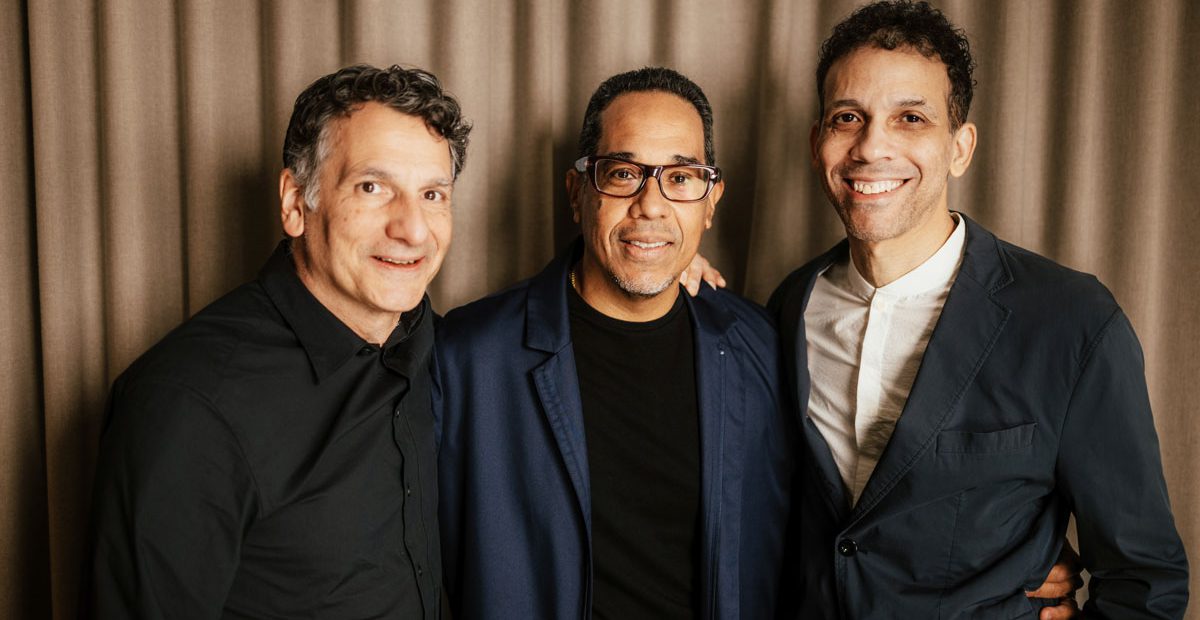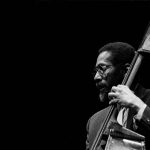Among Danilo Perez’s most significant words of advice came from the iconic jazz trumpeter extraordinaire Dizzy Gillespie, when Dizzy instructed Danilo to learn about his Panamanian heritage, more than he already knew, and that it was important for jazz, that Danilo should get closer to these folk roots and to learn more about these things for developing his own unique sound as a jazz musician.
Dizzy had told this to Danilo Perez when Danilo was in Gillespie’s United Nation Orchestra, having joined the group in 1989. With that appointment into the orchestra, Danilo Perez was also the youngest member of the group. Perez was a member of the orchestra until 1992, when Gillespie passed away.
Dizzy Gillespie is best known as a bebop innovator from the mid 1940s along with Charlie Parker, Thelonious Monk, Bud Powell, among others, and later with Miles Davis. But in 1947, Dizzy also co-wrote the Latin-jazz standards “Manteca” and “Tin Tin Deo” with the Cuban conguero Chano Pozo, both landmarks for Afro-Cuban jazz. And so this attraction to Afro-Cubano or any Latin American rhythms was key to Dizzy’s sound, whose nickname in later years became “The Ambassador of Jazz.”
The pianist, composer, educator and social activist, Danilo Perez (born in 1965 in Panama) began studying European classical music at the age of ten, but he seems to have taken the advice from his mentor Dizzy Gillespie most to heart for his own career as a jazz leader since 1992 till the present.
Among his most noted Latin-jazz recordings is “PanaMonk” (1996), as a sly mixture of Monk with a Latin spin to standards or Monk’s compositions; then even more ambitious are “Motherland” (2000), “Panama Suite” (2006) and “Panama 500” (2014), weaving together African roots, Afro-Cubano, Panamanian folk, and straight jazz (each recorded with dozens of players from the Americas). Now as a New York-based musician, Perez also has more straight-ahead jazz recordings, yet with experimental tendencies, in a trio with bassist John Patitucci and drummer Brian Blade as “Children of the Light.”
Patitucci (born in Brooklyn, New York, 1959) has recorded on many of Perez’s recordings, including the Latin-American orchestras and as a trio or quartet. Their earliest recording as a quartet (with a vocalist) is on Perez’s “Central Avenue” (1996). Prior to this, from the mid 80s to mid 90s, Patitucci played with Chick Corea in noteworthy groups: the Elektric Band, the Akoustic Band, and a quartet.

For Perez’s European tour with a trio, he has Patitucci on bass and Adam Cruz on drums. Cruz (born in New York with Puerto Rican heritage) adds a bit more Latin-jazz flair to this colorful modern jazz unit.
European concerts in March are listed below.
March 14, Thursday — Victoria Nasional Jazzscene, Oslo, Norway
March 15, Friday – Fasching, Stockholm Sweden
March 16-17, Saturday & Sunday – G Livelab, Helsinki, Finland
March 19, Tuesday – Ronnie Scotts, London, UK
March 20, Wednesday – Bimhuis, Amsterdam, Holland
March 21, Thursday – Teatro Donizetti, Bergamo, Italy
March 22, Friday – Biella Jazz Club, Italy
March 23, Saturday – Volkhaus, Basel, Switzerland
March 24, Monday – New Town Hall, Prague, Czech Republic
March 26, Tuesday – CCB, Lisboa, Portugal
March 27, Wednesday – Auditorio de Espinho Academia, Portugal
Tony Ozuna is Art Director and senior lecturer for the School of Journalism, Media & Visual Arts at Anglo-American University in Prague.
Last modified: March 12, 2024
















